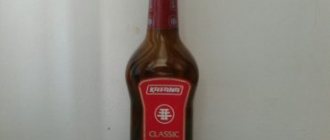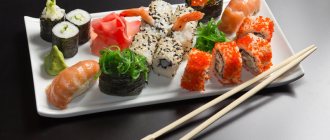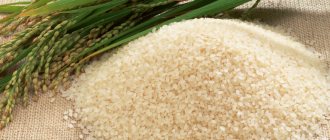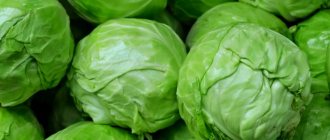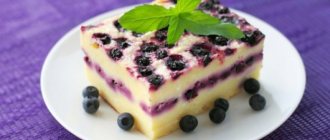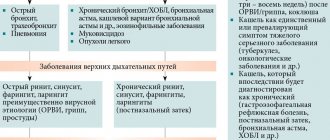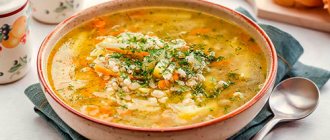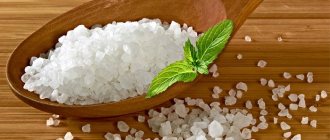Most women, after giving birth to a child, begin to adhere to a fairly strict diet, since what the mother eats, the baby also eats. By refusing many foods, they try to protect their newborn baby from allergic reactions.
One controversial food is corn. It raises many questions: is a nursing mother allowed to eat corn and in what form?
No time to read? free list of allowed and prohibited foods during lactation
Is it possible to eat corn while breastfeeding?
Cereal has unique properties that affect tissue rejuvenation and affects the woman’s reproductive system, which is necessary for any young mother after childbirth. Therefore, this product will definitely have a positive effect on women who have recently given birth.
Pediatricians' opinions on corn consumption
According to doctors, the answer to the question: can a nursing mother eat corn or not? Yes, it is allowed, because the product has a good effect on the health of both the woman and the child. And some even recommend including it on the menu.
It is permissible to start eating products made from corn flour from the first month after birth, but it is better to introduce boiled cobs from the second month of the baby’s life. During this period, the baby begins to adapt to the environment, which means he will be able to begin to absorb more complex foods through breast milk.
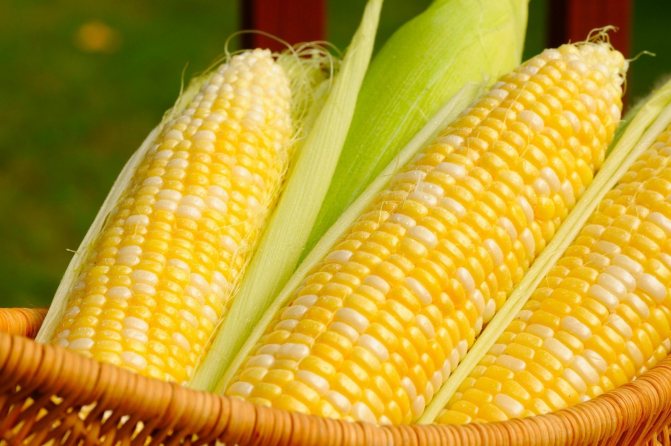
Is it possible to have boiled corn while breastfeeding?
Begin to introduce boiled corn when breastfeeding a newborn with caution. You can try a small amount at first and see if your child reacts. These precautions are due to the fact that individual intolerance to the product is possible and it is better to play it safe.
Also monitor your condition: for some women, cereal causes digestive problems and in this case it is better to exclude it.
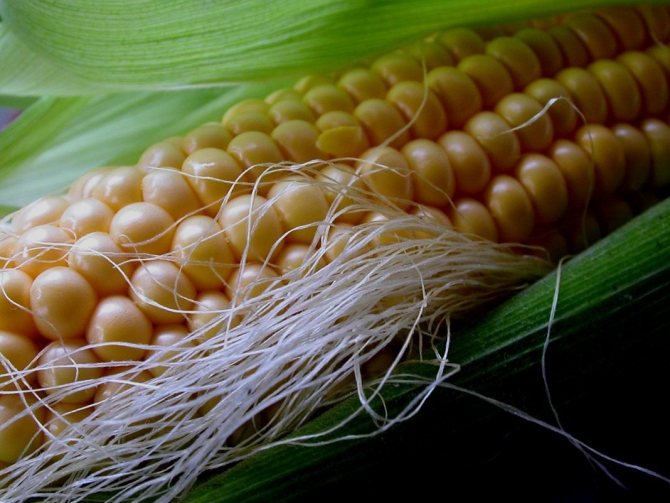
Corn with breastfeeding at 1 month
In the first month, the baby’s intestinal tract is developing, so you shouldn’t overload it with heavy foods. Porridge made with corn grits is acceptable, since it is already a processed product, and it is easier to digest, both by the body of mother and baby.
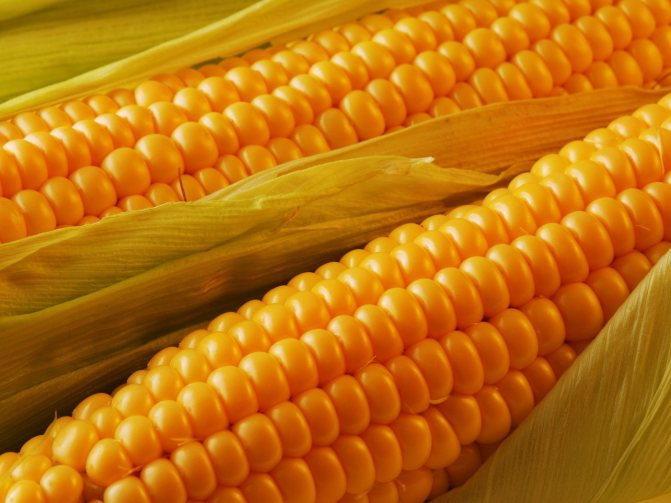
Boiled corn during breastfeeding at 2 months
Pediatricians recommend starting to eat boiled corn when breastfeeding from the second month, and eat it without salt.
After use, be sure to monitor your child for 24 hours to ensure there are no adverse reactions.
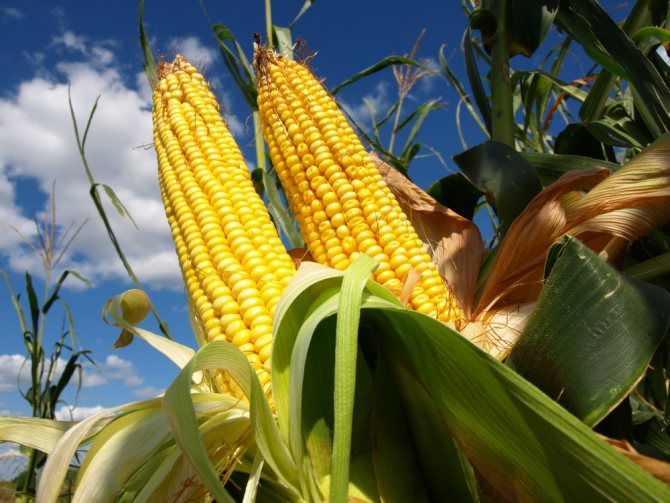
Is it possible to have canned corn during breastfeeding?
Canned corn is a product that contains many different additives, dyes and flavor enhancers, but there are almost no vitamins left, so doctors advise completely avoiding it during breastfeeding. There is no benefit, but you can harm yourself and your child.
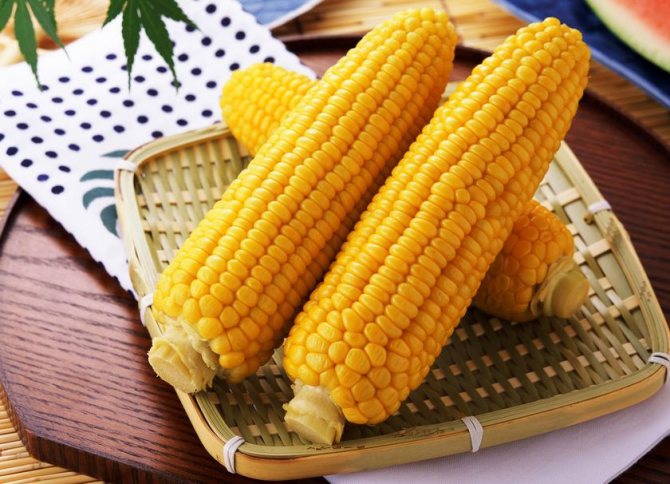
Corn-based products for breastfeeding - is it possible or not?
It is impossible to give a definite answer; some products will be absolutely harmless, while others may be harmful. Therefore, be careful when choosing products in the store.

Corn sticks
There are no prohibitions here either, the main thing is to read the ingredients on the packaging. Make sure that the sticks do not contain dyes, flavor enhancers and other preservatives or products that can cause an allergic reaction.
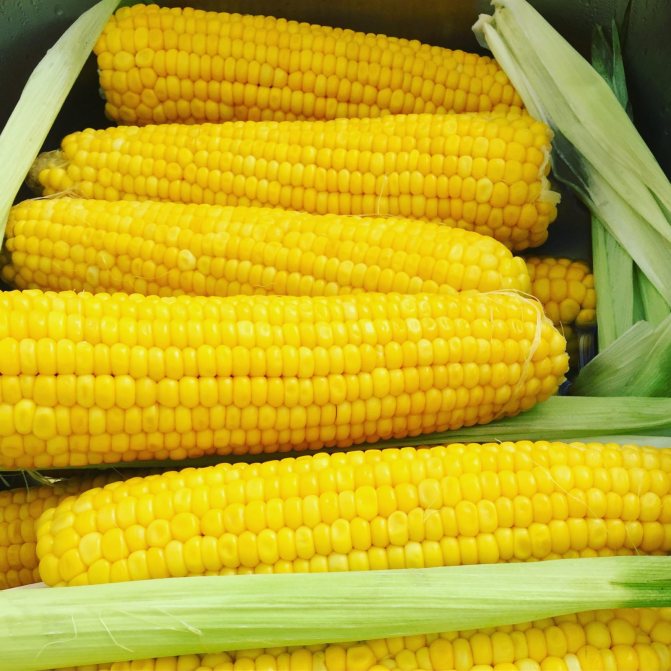
Corn porridge
As we wrote above, according to doctors, it is permissible to eat porridge from this cereal from the first month of breastfeeding. But dear mothers, do not forget that this product is quite high in calories and therefore if you are watching your weight, it is better not to lean on it.

Cornflakes
As with corn sticks, the main thing here is to look at the composition of the product. Do not take flakes with additives, honey, or dyes, but the most common, classic flakes are quite suitable for a nursing mother.
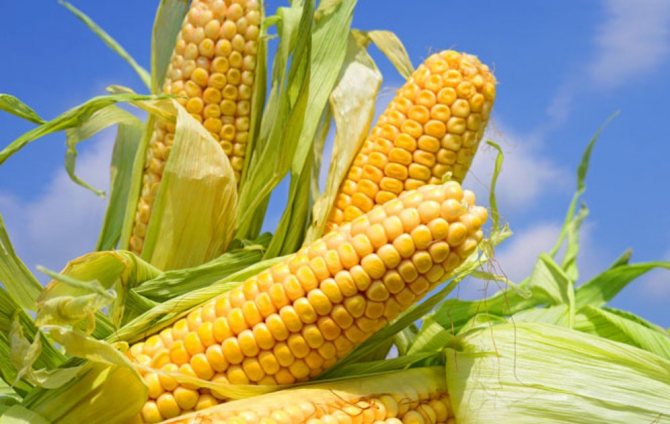
Harmful properties of corn

Eating boiled corn is not recommended for thrombosis or high blood clotting. In ordinary people, overeating this cereal can cause nausea, heartburn, migraines and indigestion with increased formation of intestinal gases. For a nursing mother, this means that the baby may experience colic and bloating.
Corn does not contain gluten, but it may be present in corn flour. This occurs due to the accidental introduction of a certain amount of gluten-containing flour, for example, wheat, corn, into a flour mill during production. During lactation, a mother does not need to use this flour for baking, even if the child does not have gluten intolerance. Signs of an allergy to gluten appear from the age of 6 months, when complementary foods based on such flour begin to be introduced.
Benefit
Thanks to its rich composition, the product is beneficial for the body of mother and baby. It will help make the nursing diet more varied and balanced.
Eating cereal has a beneficial effect on human health. This includes normalizing the nervous system, strengthening blood vessels, influencing reproductive functions, and improving metabolism. This is probably why, back in the USSR, cereal was called the queen of fields.
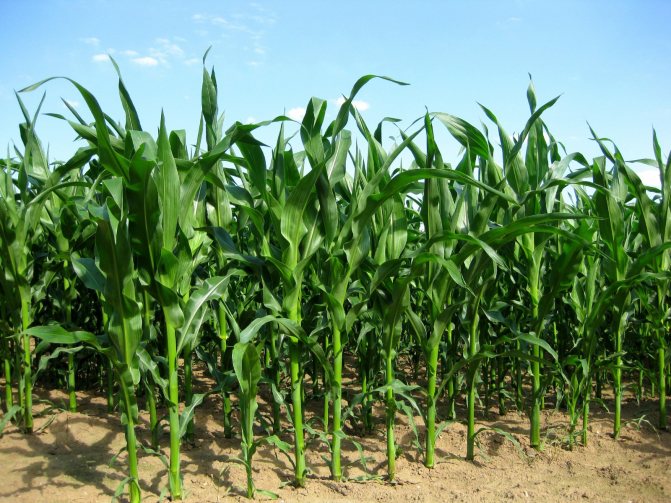
Vitamins contained in corn
Corn is a real storehouse of vitamins and microelements. It contains fourteen of the nineteen minerals necessary for the human body. Vitamins H, B6, PP, B1, B5, B9, E, B2, A and beta-carotene are essential for the health of our body.
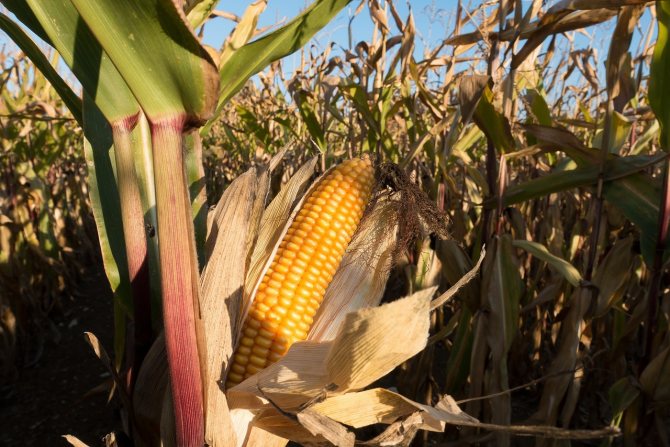
Harm from eating corn during breastfeeding
Despite its positive properties, the cereal can be harmful if the mother suffers from intestinal diseases, exacerbation of peptic ulcers, and a predisposition to thrombosis.
It will be harmful if an allergic reaction or individual intolerance is detected during use.
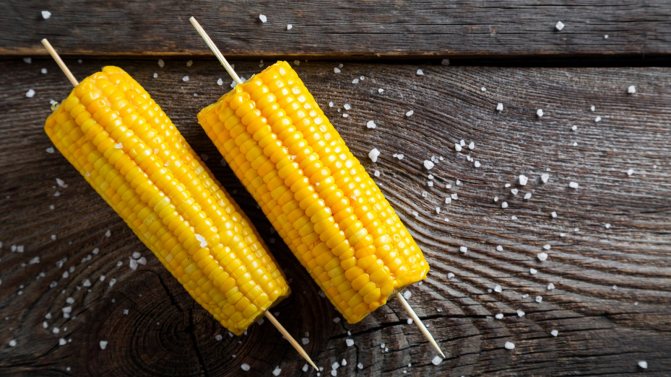
Effect on lactation
There is a belief that cereal increases milk. Medicine does not confirm this in any way, but in any case, a positive attitude is more likely to benefit than harm.
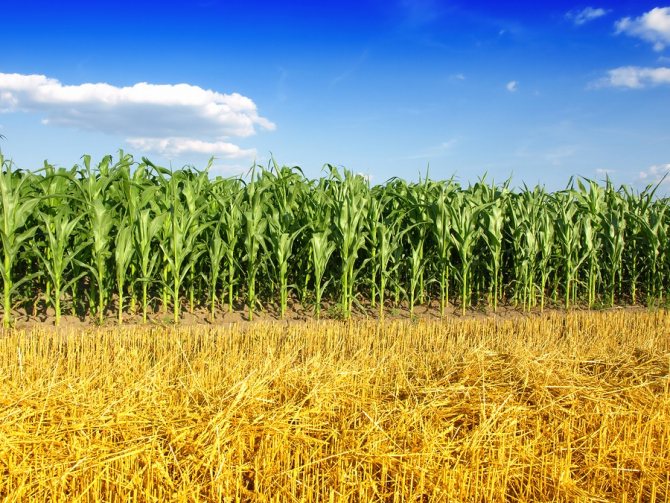
Feedback from nursing mothers
“The first child had no reaction to fresh corn. But I didn’t give it away, maximum one cob 1-2 times a week. But when feeding the second one, I decided to try canned food and diathesis appeared. Keep in mind!"
“I introduced it gradually, from the second month, I was worried that there would be a reaction. In the end, everything was fine, it didn’t affect the child in any way.”
Popcorn during lactation
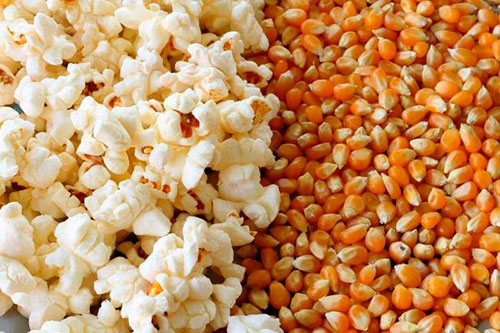
Popcorn is a healthy product because it contains a lot of fiber and quickly fills you up. It is well suited for people who want to lose weight. But this is if we are talking about popcorn that was made by hand. The product that is offered in cinemas and other public catering places contains a lot of oil, aromatic additives, dyes - it is not healthy.
If the child is 3-4 months old, then puffed corn is allowed for the mother while breastfeeding. She can treat herself once a week with a small amount of freshly prepared treats. In this case, you need to carefully observe the behavior of the baby. If skin rashes appear or intestinal function is disrupted, then popcorn should be excluded from the diet. We'll have to wait until the baby grows up.
How to include in the diet during breastfeeding
You can try to use this product, but afterward be sure to monitor the condition of the child and your own; if no one has any problems, then the product can be safely introduced into the diet on an ongoing basis.

When can you eat corn during breastfeeding?
If mother and child have no illnesses or allergic reactions, then you can safely eat the vegetable.
How much corn can you eat per day?
As with any other product, the main thing is moderation; do not overeat. It is recommended to consume 1-2 cobs per day.
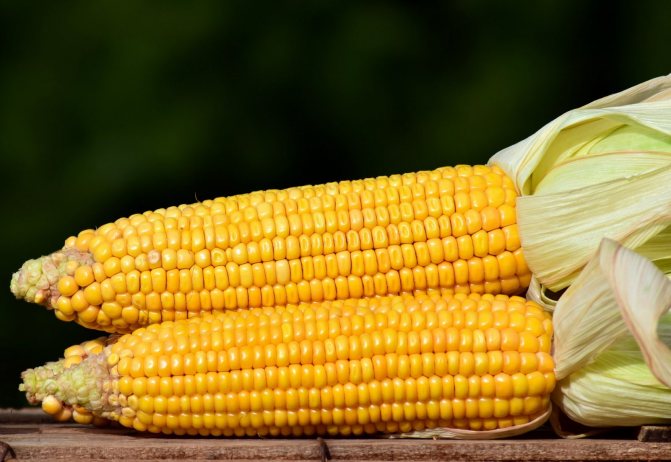
How to choose corn for a nursing mother
Since we have already found out whether a nursing mother can eat boiled corn, we need to understand how to choose it.
You should not buy the product out of season, it may contain harmful substances or carcinogens. Buy young cobs in the summer, especially since young grain contains the most vitamins and nutrients.
Homemade canned corn
But if mommy loves this canned product so much, then you can prepare it yourself at home, without fear that it will contain various additives.
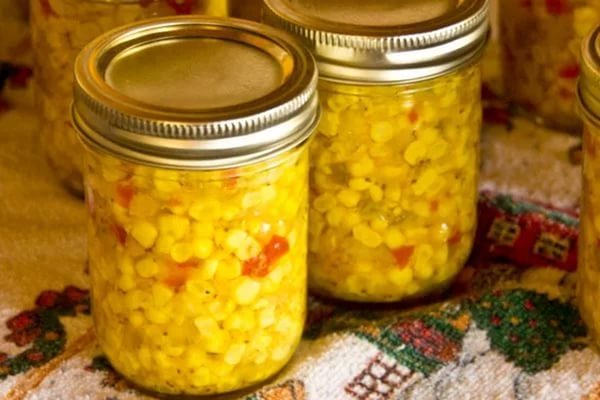
The recipe for canned corn is simple. It is enough to take young corn (3-5 cobs), 1/3 tsp. citric acid, 1 cup sugar, 0.5 tsp. salt.
Cooking steps:
- The product is boiled until cooked and all the grains are cut off.
- Take a saucepan, add 0.5 liters of water to it and bring it to a boil.
- While the water is boiling, place the corn kernels in jars, add the rest of the ingredients and fill with boiling water.
- Pasteurize the jars for about 20 minutes, then roll them up and wrap them for a couple of days.
What to cook from corn for a nursing mother
If you eat grains on the cob, then we recommend trying adding grains to your salad. A freshly brewed product will be an excellent alternative to canned food.
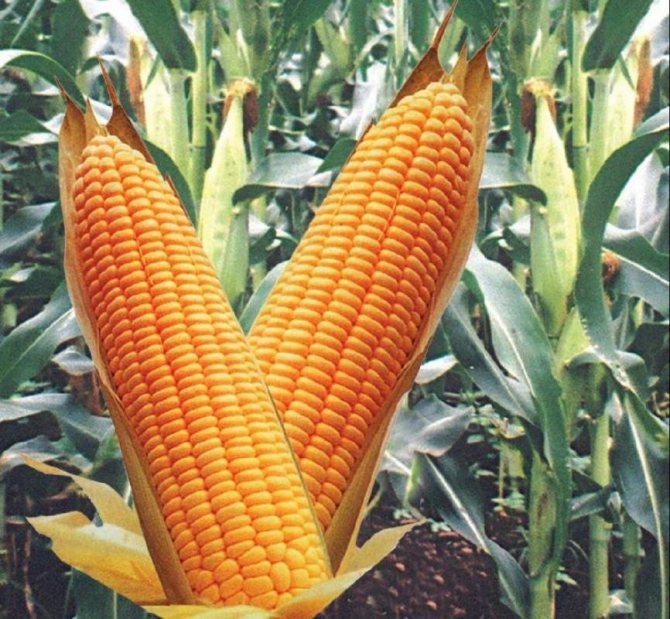
What's the best way to cook?
For nursing mothers, boiled cereal is best suited, as it best preserves all the vitamins.

How to choose the right corn?
There are several recommendations for choosing high-quality young corn cobs:
- Buy in season, from July to August. Ears purchased later may be overripe and tough.
- Pay attention to the color and softness of the cob. When the grain is pierced, milk appears from it.
- The grains should be tightly located next to each other.
- If the grains are hard or pitted, it is not recommended to use it.
- Green, not withered leaves on the cob also indicate lack of freshness.
With the right and rational approach, a nursing woman can safely consume corn dishes, which benefit not only her, but also her baby.
